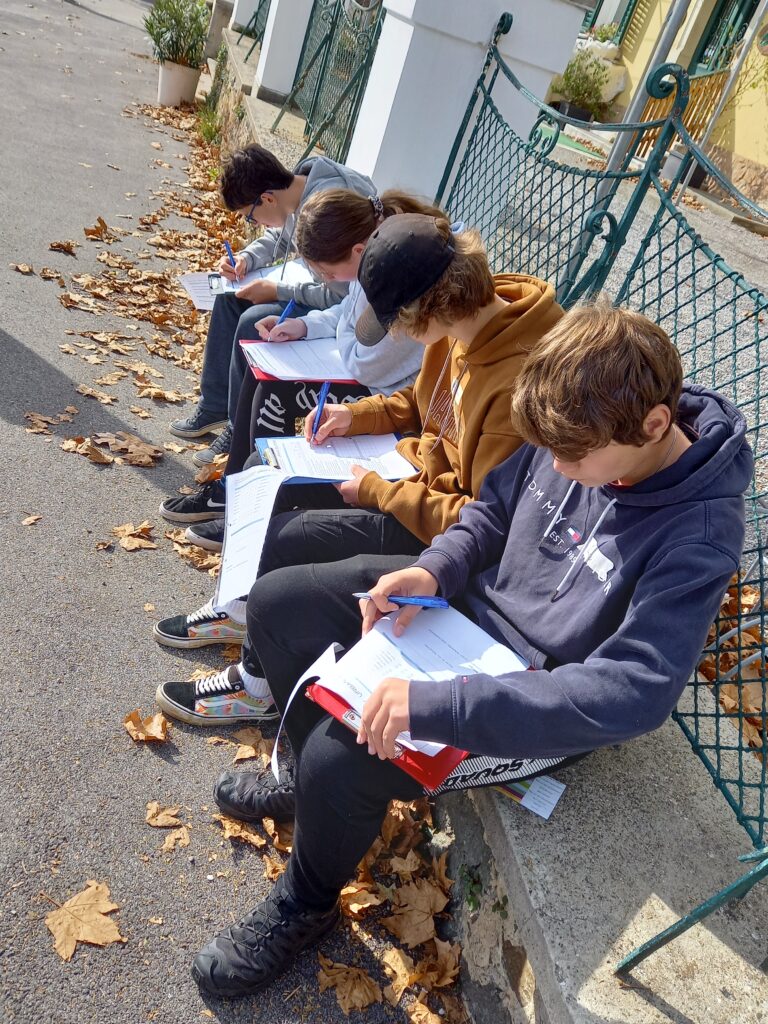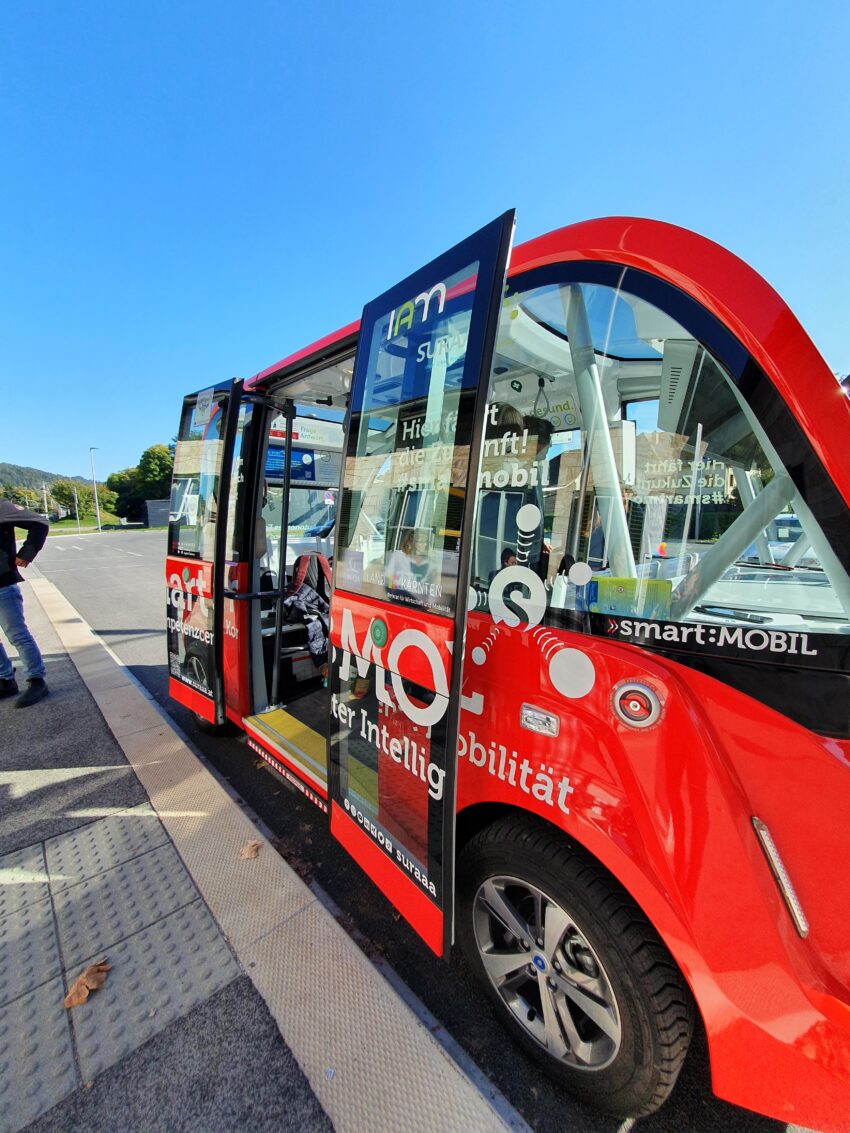On Tuesday the 19th and Wednesday the 20th of October 2021, the Catapult Project Consortium conducted field tests with teenagers and senior citizens in Pörtschach, Austria. The aim was to collect insights on their needs and barriers as well as their vision of inclusive future mobility. The Austrian research team (consisting of FACTUM and AustriaTech) was accompanied by colleagues from KU Leuven as well as two Belgian practitioners that were interested in adopting insights from the project into their work in Flanders, Belgium.

On Tuesday, a class of 24 students from Kötschach-Mauthen visited the test site to participate in our field test. The field test consisted of six different stations dealing with (automated) mobility and inclusiveness. Within the field test, they took a ride on the automated Shuttle by Navya that runs through Pörtschach and shared their thoughts on self-driving busses. Furthermore, they were asked to slip into the role of quality managers and inspect the bus stops as well as the surrounding walking and cycling infrastructure and give feedback on where they identify potential to better align them with their needs. The response of the teenagers regarding the day was very positive: ‘It was a cool event’, one student said during the wrap-up session.
On Wednesday, 28 senior citizens took part in our field tests. Split into small groups, they discussed the bus stop of the future and took a test drive with the shuttle.
Data about the needs and expectations was collected following the principles of the Participatory Observation method as well as the Thinking Aloud method. They were furthermore asked specific questions related to their mobility behavior and requirements related to the use of public transport. The senior citizens then participated in focus group interviews to get a more profound understanding of their attitude towards the technology as well as their wishes for inclusive future mobility. Their resume was also very positive. One female participant highlighted: “I am happy that I had the chance to participate. It was a very interesting afternoon for me”.
During our two days in Pörtschach, we were able to gather a lot of valuable data that will now be processed and used for the development of the serious game as well as the foreseen policy recommendations. A special thanks goes to SURAAA and the team, for supporting us and providing their infrastructure for our research.

